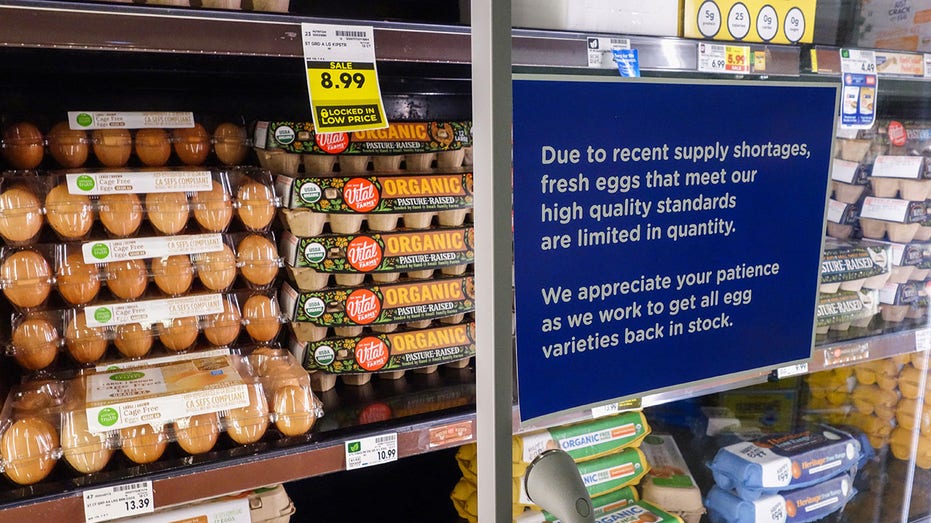Unveiling: How Web Crawlers Bypass Access Restrictions Using Proxy IPs
In the vast digital landscape, web crawlers are indispensable tools for gathering data, analyzing trends, and informing business decisions. However, accessing certain websites can be challenging due to various access restrictions. This article delves into how web crawlers leverage proxy IPs to bypass these barriers, offering practical insights and technical details that will keep readers engaged and informed. Additionally, we'll briefly mention 98IP Proxy as a reliable solution in this context. I. Understanding Web Crawlers and Access Restrictions A. What Are Web Crawlers? Web crawlers, also known as spiders or bots, are automated programs that systematically traverse the web, fetch web pages, and index their content. They are fundamental to search engines like Google and Bing, which rely on them to discover and rank web pages. B. Types of Access Restrictions Websites often implement access restrictions to prevent unauthorized access, mitigate abuse, or comply with legal requirements. These restrictions can include: IP Blocking: Blocking specific IP addresses from accessing the site. Rate Limiting: Limiting the number of requests per minute from a single IP. CAPTCHA Challenges: Presenting CAPTCHA challenges to verify human users. Geographical Restrictions: Restricting access based on the user's geographical location. II. The Role of Proxy IPs in Bypassing Restrictions A. What Are Proxy IPs? Proxy IPs are intermediary servers that act as intermediaries between a client (e.g., a web crawler) and a server (e.g., a website). They forward requests from the client to the server and return responses back to the client. Proxy IPs can be classified into different types, such as HTTP proxies, SOCKS proxies, and VPNs. B. How Proxy IPs Help Web Crawlers IP Rotation: Proxy IPs allow web crawlers to rotate through a pool of IP addresses, thereby avoiding IP blocking and rate limiting. Anonymity: Proxy IPs can provide varying levels of anonymity, from fully anonymous to transparent, depending on the user's needs. Geographical Diversity: Proxy IPs located in different geographical regions can help web crawlers access geographically restricted content. III. Implementing Proxy IPs in Web Crawlers A. Choosing the Right Proxy Provider When selecting a proxy provider, consider the following factors: Pool Size: A larger pool of IPs means less chance of IP reuse and detection. Anonymity Level: Choose a provider that offers the level of anonymity suitable for your needs. Geographical Distribution: Ensure the provider has IPs distributed across various geographical regions. Reliability and Speed: Choose a provider with a good reputation for reliability and speed. B. Integrating Proxy IPs into Web Crawlers Below is a simplified example of how to integrate proxy IPs into a web crawler using Python and the requests library. Note that this example is for illustrative purposes only and may need adjustments based on your specific use case. import requests from bs4 import BeautifulSoup import random # List of proxy IPs (this is just an example; in practice, you would use a proxy provider's API) proxies = [ 'http://proxy1.example.com:8080', 'http://proxy2.example.com:8080', # ... add more proxy IPs ... ] # Function to fetch a webpage using a random proxy def fetch_webpage(url): proxy = random.choice(proxies) try: response = requests.get(url, proxies={'http': proxy, 'https': proxy}) response.raise_for_status() # Raise an HTTPError for bad responses return response.text except requests.RequestException as e: print(f"Error fetching webpage: {e}") return None # Example usage url = 'http://example.com' html_content = fetch_webpage(url) if html_content: soup = BeautifulSoup(html_content, 'html.parser') # Process the webpage content as needed print(soup.prettify()) C. Advanced Considerations Error Handling: Implement robust error handling to manage proxy failures, timeouts, and other potential issues. Proxy Rotation Strategy: Develop a strategy for rotating through proxy IPs to avoid detection and ensure even distribution of requests. User-Agent Spoofing: Combine proxy IPs with user-agent spoofing to further mimic human behavior and avoid detection. IV. Brief Mention of 98IP Proxy 98IP Proxy is a reliable proxy provider offering a large pool of IPs distributed across multiple geographical regions. They provide both HTTP and SOCKS proxies with varying levels of anonymity. Their proxy services are known for their speed, reliability, and ease of integration. By using 98IP Proxy, web crawlers can effectively bypass access restrictions and gather data more efficiently. Conclusion Web crawlers are indispensable tools for data gathering and analysis, but they often face access restrictions that hinder the

In the vast digital landscape, web crawlers are indispensable tools for gathering data, analyzing trends, and informing business decisions. However, accessing certain websites can be challenging due to various access restrictions. This article delves into how web crawlers leverage proxy IPs to bypass these barriers, offering practical insights and technical details that will keep readers engaged and informed. Additionally, we'll briefly mention 98IP Proxy as a reliable solution in this context.
I. Understanding Web Crawlers and Access Restrictions
A. What Are Web Crawlers?
Web crawlers, also known as spiders or bots, are automated programs that systematically traverse the web, fetch web pages, and index their content. They are fundamental to search engines like Google and Bing, which rely on them to discover and rank web pages.
B. Types of Access Restrictions
Websites often implement access restrictions to prevent unauthorized access, mitigate abuse, or comply with legal requirements. These restrictions can include:
- IP Blocking: Blocking specific IP addresses from accessing the site.
- Rate Limiting: Limiting the number of requests per minute from a single IP.
- CAPTCHA Challenges: Presenting CAPTCHA challenges to verify human users.
- Geographical Restrictions: Restricting access based on the user's geographical location.
II. The Role of Proxy IPs in Bypassing Restrictions
A. What Are Proxy IPs?
Proxy IPs are intermediary servers that act as intermediaries between a client (e.g., a web crawler) and a server (e.g., a website). They forward requests from the client to the server and return responses back to the client. Proxy IPs can be classified into different types, such as HTTP proxies, SOCKS proxies, and VPNs.
B. How Proxy IPs Help Web Crawlers
- IP Rotation: Proxy IPs allow web crawlers to rotate through a pool of IP addresses, thereby avoiding IP blocking and rate limiting.
- Anonymity: Proxy IPs can provide varying levels of anonymity, from fully anonymous to transparent, depending on the user's needs.
- Geographical Diversity: Proxy IPs located in different geographical regions can help web crawlers access geographically restricted content.
III. Implementing Proxy IPs in Web Crawlers
A. Choosing the Right Proxy Provider
When selecting a proxy provider, consider the following factors:
- Pool Size: A larger pool of IPs means less chance of IP reuse and detection.
- Anonymity Level: Choose a provider that offers the level of anonymity suitable for your needs.
- Geographical Distribution: Ensure the provider has IPs distributed across various geographical regions.
- Reliability and Speed: Choose a provider with a good reputation for reliability and speed.
B. Integrating Proxy IPs into Web Crawlers
Below is a simplified example of how to integrate proxy IPs into a web crawler using Python and the requests library. Note that this example is for illustrative purposes only and may need adjustments based on your specific use case.
import requests
from bs4 import BeautifulSoup
import random
# List of proxy IPs (this is just an example; in practice, you would use a proxy provider's API)
proxies = [
'http://proxy1.example.com:8080',
'http://proxy2.example.com:8080',
# ... add more proxy IPs ...
]
# Function to fetch a webpage using a random proxy
def fetch_webpage(url):
proxy = random.choice(proxies)
try:
response = requests.get(url, proxies={'http': proxy, 'https': proxy})
response.raise_for_status() # Raise an HTTPError for bad responses
return response.text
except requests.RequestException as e:
print(f"Error fetching webpage: {e}")
return None
# Example usage
url = 'http://example.com'
html_content = fetch_webpage(url)
if html_content:
soup = BeautifulSoup(html_content, 'html.parser')
# Process the webpage content as needed
print(soup.prettify())
C. Advanced Considerations
- Error Handling: Implement robust error handling to manage proxy failures, timeouts, and other potential issues.
- Proxy Rotation Strategy: Develop a strategy for rotating through proxy IPs to avoid detection and ensure even distribution of requests.
- User-Agent Spoofing: Combine proxy IPs with user-agent spoofing to further mimic human behavior and avoid detection.
IV. Brief Mention of 98IP Proxy
98IP Proxy is a reliable proxy provider offering a large pool of IPs distributed across multiple geographical regions. They provide both HTTP and SOCKS proxies with varying levels of anonymity. Their proxy services are known for their speed, reliability, and ease of integration. By using 98IP Proxy, web crawlers can effectively bypass access restrictions and gather data more efficiently.
Conclusion
Web crawlers are indispensable tools for data gathering and analysis, but they often face access restrictions that hinder their effectiveness. By leveraging proxy IPs, web crawlers can bypass these barriers and continue gathering valuable data. By choosing the right proxy provider, integrating proxy IPs into your crawler, and considering advanced strategies, you can ensure that your web crawler remains effective and efficient. Remember, reliable proxy providers like 98IP Proxy can be invaluable partners in this endeavor.








































































